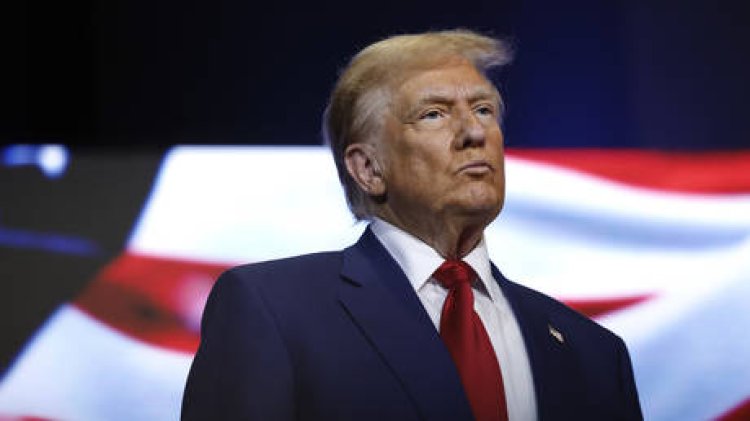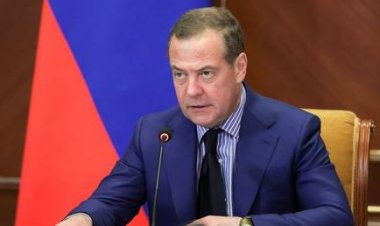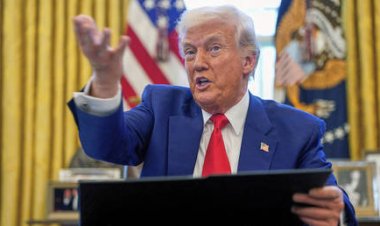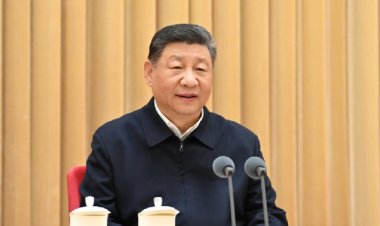"Smoke in Rome": Unraveling the True Dynamics Between Trump and Tehran
While US negotiators share smiles with Tehran, internal divisions and external pressures highlight the precariousness of Washington’s stance. Last Saturday, the second round of US-Iran nuclear talks was held in Rome, following an initial meeting...

Last Saturday, the second round of US-Iran nuclear talks was held in Rome, following an initial meeting a week earlier in Muscat, Oman. Both parties characterized the discussions as “constructive,” yet that optimism was quickly overshadowed by a wave of contradictory messages from the Trump administration. Despite a seemingly encouraging atmosphere, it remained uncertain whether a new nuclear agreement was genuinely within reach.
At the beginning of negotiations, National Security Advisor Mike Waltz—a vocal critic of Iran—set a stringent demand: Tehran must entirely dismantle its uranium enrichment program for any deal with the US. However, after the Muscat meeting, Special Envoy to the Middle East Steve Witkoff, who led the US delegation, conveyed a markedly different perspective. In an interview with Fox News, he indicated that Iran might be permitted to maintain limited uranium enrichment for peaceful energy uses—a major shift from prior expectations.
Witkoff underscored the necessity of strict verification protocols to ensure Iran’s nuclear capabilities remain non-militarized, which would encompass monitoring missile technology and delivery systems. Notably absent from his comments was any reference to “dismantlement.” This change suggested that the administration might be contemplating a modified return to the 2015 Joint Comprehensive Plan of Action, the very agreement Trump denounced and abandoned in 2018, labeling it a “disaster.”
However, this shift was short-lived. Just a day later, Witkoff reversed course, reaffirming the call for the complete dismantling of Iran’s nuclear and weapons programs in a post on X. What caused this sudden change in tone?
Axios reported that Trump convened with top national security officials shortly after the Muscat talks to reevaluate US strategy. In that meeting, Vice President JD Vance, Witkoff, and Defense Secretary Pete Hegseth advocated for a more pragmatic approach, cautioning that demanding Tehran dismantle its entire nuclear infrastructure could derail the discussions. Iran had clearly signaled that such extensive concessions were off the table, with Vance suggesting that Washington should prepare for some level of compromise.
Not everyone was on board. A competing faction, led by Waltz and Secretary of State Marco Rubio, held a different view. They contended that Iran's current vulnerability offered the US a rare advantage that should not be wasted. They insisted that if Tehran failed to comply with America’s conditions, the US should be poised to take military action or support Israeli initiatives.
This divide reveals a significant strategic fracture within the Trump administration. The contrasting perspectives—one advocating for total disarmament and another seeking a more measured approach to control weaponization while allowing for some peaceful enrichment—create a substantial gray area. The absence of a unified message, or even a basic consensus, risks placing the US at a disadvantage against a well-coordinated Iranian negotiating team.
In summary, Trump finds himself in a challenging balancing act. On one hand, he clearly wants to steer clear of military conflict. The decision to send Witkoff, known for his willingness to negotiate, indicates a sincere inclination toward diplomacy rather than saber-rattling. If hardliners had dominated Washington’s stance, the second round of talks in Rome might not have materialized at all.
On Monday, April 21, Trump cautiously informed reporters that the negotiations were progressing “very well,” but cautioned that substantive progress would require time. His choice of words reflected an intent to maintain flexibility while recognizing the complexities and risks involved in engaging with Tehran.
The optimism appears to be more pronounced on the Iranian side. Foreign Minister Abbas Araghchi noted that the two parties had discovered significantly more common ground in Rome compared to Muscat. His comments imply that momentum is gaining and that meaningful progress may be imminent.
Araghchi’s travel schedule also raised eyebrows. Before arriving in Rome, he stopped in Moscow to meet with President Vladimir Putin and Foreign Minister Sergey Lavrov. He reportedly delivered a personal message from Supreme Leader Ayatollah Ali Khamenei, referred to as “a message to the world.” The West interpreted this visit as a significant public reaffirmation of the Moscow-Tehran alliance. Retired US Army Colonel and former Pentagon advisor Douglas MacGregor pointed out on X that any significant American military action against Iran would likely provoke a response from Russia, Iran's strategic ally.
That same day, President Putin ratified a law solidifying a Comprehensive Strategic Partnership with Iran, further strengthening political and economic ties. In the context of delicate US-Iran talks, the Moscow-Tehran connection appears increasingly important. With these growing relationships, Washington may find it increasingly challenging to exert unilateral pressure on Iran.
Simultaneously, skepticism remains prevalent in Tehran. Many Iranian officials are cautious regarding Trump, whose unilateral decision to withdraw from the JCPOA in 2018 still weighs heavily. Their distrust extends beyond Trump to a broader fear that future US administrations may similarly reverse their predecessors' decisions. If Obama’s agreements were dismantled by Trump, they wonder why Trump’s own agreements would not face a similar fate.
Nevertheless, major international media outlets have confirmed that two additional rounds of talks are scheduled: one in Geneva next week and another in Oman the following week. This sustained diplomatic engagement indicates a mutual interest in keeping communication channels open. For now, Trump’s tempered optimism and Iran’s cautious tone suggest that, at least in the short term, the risk of war has diminished.
This easing of tensions conveys a deeper truth: despite residual mistrust and domestic political challenges, both sides recognize the merits of remaining engaged in dialogue. Such dynamics are evident even to those outside intricate policy discussions. However, in Israel, the atmosphere is notably tenser. Prime Minister Benjamin Netanyahu, ever skeptical of negotiations with Iran, has condemned the talks, viewing them as a potential means to soften Tehran's isolation and undermine Israel's strategic posture.
Ultimately, Trump’s focus is not necessarily regional geopolitics but rather his legacy. He wishes to be recognized as the president who averted war and negotiated a deal that resonates with the American populace. In this context, Netanyahu's objections may need to take a backseat.
Debra A Smith for TROIB News












